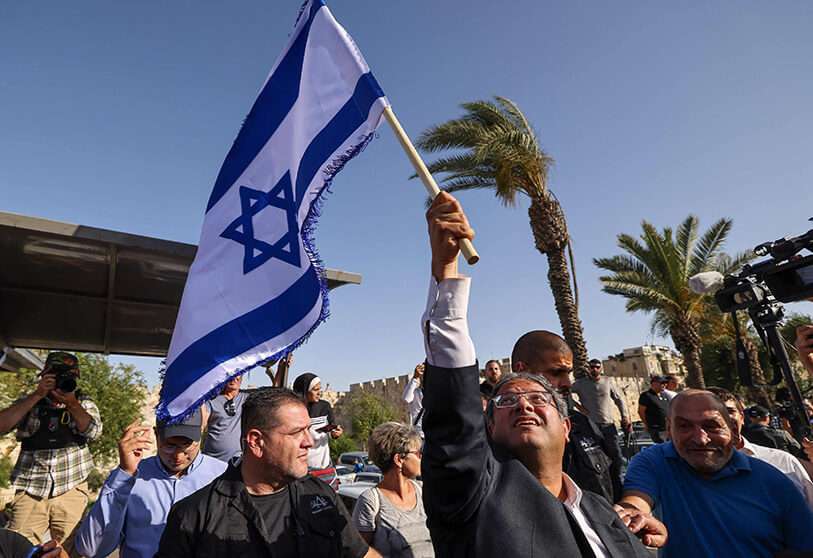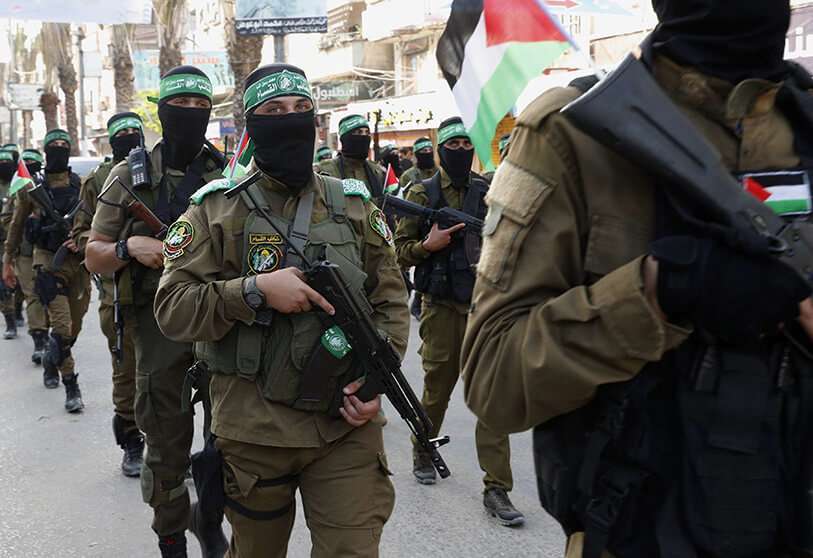The March of Flags: New Israeli government faces first challenge

Israel’s new government, headed by conservative Naftali Bennet, is preparing to take on a new challenge that could once again strain the streets of Jerusalem and relations between Palestinians and Jews. The well-known "March of Flags", Yom Yerushalayim in Hebrew, is expected to take place on June 15 to celebrate the reunification of Jerusalem and the restoration of Israeli control over the territory after its victory in the Six-Day War.
The Lebanese daily Al-Akhbar has reported that the Hamas group is threatening to return to an escalation of violence if the march takes place in Jerusalem, as already scheduled. In this regard, Hamas has informed Egypt that holding the rally will provoke a response not dissimilar to that of last month.

Meanwhile, the Israeli newspaper Maariv has reported that "police are preparing to parade the flags that will be held in Jerusalem on Tuesday with increased forces, fearing violent clashes between marchers and Muslim demonstrators expected to arrive in the area".
According to police statements, the "March" will take place at one of the holy gates of the Old City of Jerusalem, the Damascus Gate, located at the entrance to the Arab market. In this context, Palestinian activists have appealed through social networks to gather at Damascus Gate, also known as Bab al-Amud, while Palestinian politicians and officials have already warned of the possible consequences of holding the rally.

In this regard, Hamas has called for a general mobilisation in the city of Jerusalem. Meanwhile, the newly appointed prime minister, Naftali Bennet, has said that if Hamas attacks Israel, it will receive a "strong response".
"Hamas in Jerusalem invites you to a general mobilization and rally in the squares of the blessed Al-Aqsa Mosque and in the streets of the Old City. and confronting the occupier can be to prevent it from imposing its will and changing the features of Jerusalem in identity and form".
Initially, Yom Yerushalayim takes place on the 28th of Iyar, which would correspond to May, according to the Jewish calendar. However, military attacks launched from Gaza by Hamas in response to the eviction of several Palestinian families from the Sheikh Jarrah neighbourhood and the occupation of the esplanade of the Al-Aqsa Mosque led to the cancellation of the march and a military response by Israel. The violence resulted in a devastating toll of at least 230 Palestinians reportedly killed along with 13 Israelis.
The clashes were followed by 11 days of violence in which bombardments were the protagonists and led to the destruction of Gaza. Following the proclamation of a ceasefire by now former minister Netanyahu, the offensives ceased, leaving extensive damage in the Gaza Strip and displacing Palestinians to refugee camps. Last week, Egypt deployed a large contingent of aid to assist and help Gaza in the reconstruction of the Strip. According to local officials, the reconstruction cost is estimated at about $150 million.

A new episode of violence would have fatal consequences for Gaza, which, weakened and still reeling from the attacks and bombardments, is trying to recover in a highly damaged and tense context due to the Palestinian-Israeli conflict, which is far from over. After Netanyahu's departure from power, now in opposition, it will be seen how the new government deals with a problem that is far from finding tangible and peaceful solutions. Moreover, Netanyahu's new position leaves the former prime minister in a new role of aspiring to regain his post.
Bennet thus begins a new eight-party government characterised by strong contradictions between them, disagreements that put the new government in the spotlight and raise the question of how long the new leader will last in office. In this way, the March of Flags poses a new challenge in which Bennet will be forced to learn how to act. Then comes the challenge of passing the budget after managing Netanyahu's departure. Bennet will now begin to govern in a divided country, marked by the ever-present Palestinian conflict.
If Hamas decides to attack in response to the march, Bennet has already warned that his response will lead to new episodes of violence that, far from offering solutions, will add further tension to a conflict that is entering its seventy-third year of rift between Palestinians and Israelis.









